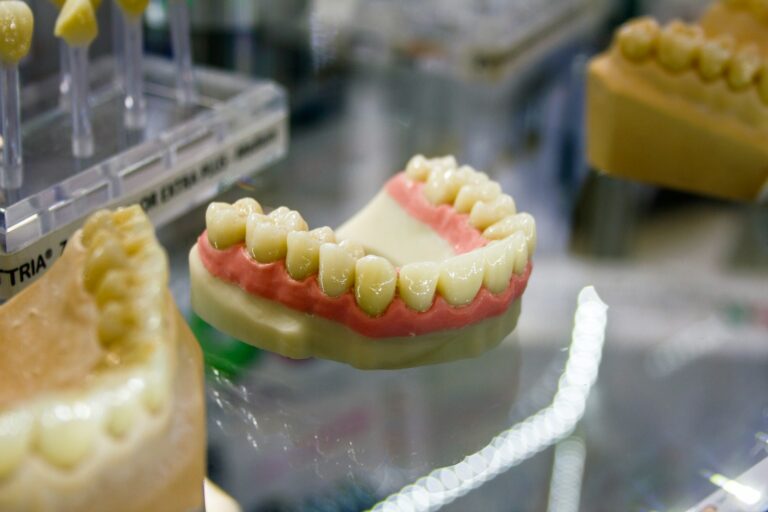
Veneers are a widely sought-after solution in cosmetic dentistry, capable of transforming smiles by concealing imperfections such as chips, stains, and gaps.
This guide aims to cover everything you need to know about veneers, including the various types available—such as porcelain and composite—as well as the placement process and the numerous benefits they offer.
It also addresses some common concerns about veneers, such as sensitivity and maintenance, while providing helpful tips on how to manage any discomfort that may arise.
Whether you are contemplating veneers or simply seeking information, this comprehensive guide is designed to equip you with all the details you need.
What Are Veneers?

Veneers have become a widely recognised cosmetic dentistry option aimed at enhancing the aesthetic appeal of one’s smile by concealing imperfections in the teeth. These thin shells, crafted from either porcelain or composite resin, offer a natural look that can truly transform a smile and increase confidence.
Custom-made to fit over the front surface of existing teeth, dental veneers effectively address concerns such as discolouration, alignment, and even bite issues. Despite the cost of veneers, many patients view them as a worthwhile investment in achieving a long-lasting, radiant smile with minimal impact on the underlying tooth structure.
How Are Veneers Placed?
The process of placing veneers consists of several important steps, starting with a thorough dental consultation to evaluate individual needs and expectations. During this stage, patients can also address common questions, such as whether veneers can be used only for one tooth or must be applied in sets.
Once options have been discussed and a treatment plan developed, the dentist will prepare the teeth by gently removing a small amount of enamel to ensure a proper fit for the veneers. Whether a single tooth is being enhanced to match the surrounding teeth or a set of veneers is being placed for a complete smile transformation, the chosen type of veneer—porcelain or resin—will be custom-made to achieve a seamless look.
The final step involves precise dental bonding to secure the veneers in place, resulting in a natural appearance that aligns with the patient’s unique aesthetic goals.
What Are the Different Types of Veneers?
When contemplating veneers, it is crucial to recognise the various types available, as each presents its own distinct benefits and aesthetic qualities.
Porcelain veneers are well-regarded for their durability and natural appearance, making them an excellent choice for individuals seeking a long-lasting solution. In contrast, resin veneers are more cost-effective and easier to repair, though they may necessitate more frequent maintenance.
Additionally, Lumineers, a specific kind of porcelain veneer, are ultra-thin and can be applied without substantial tooth reduction, which makes them an attractive option for many patients.
1. Porcelain Veneers
Porcelain veneers have become a popular choice in cosmetic dentistry, and it’s easy to see why. They offer impressive durability and aesthetic appeal, closely mimicking the appearance of natural teeth. These veneers are made from high-quality dental materials designed to withstand daily wear and tear while resisting stains, ensuring a long-lasting and beautiful smile.
The benefits of choosing porcelain veneers go beyond their visual attractiveness; they provide an effective solution for correcting imperfections such as chips, gaps, and discolouration. In terms of maintenance, they typically require the same care as natural teeth, including regular brushing and dental check-ups.
However, there are some potential drawbacks to keep in mind. While porcelain veneers are designed for longevity, they can chip or crack if subjected to excessive pressure, so it’s essential for users to be mindful of their eating habits.
The balance between durability and the need for careful maintenance makes these dental enhancements a compelling option for individuals looking to enhance their dental aesthetics.
2. Composite Veneers
Composite veneers are made using a tooth-coloured resin that can be directly bonded to the teeth, providing a more budget-friendly alternative to porcelain veneers. They offer the advantage of easy adjustments and repairs, making them a sensible option for individuals who need to consider costs.
Along with being cost-effective, composite veneers typically require less removal of the natural tooth structure compared to other types, which helps preserve more of the original tooth.
While they create an attractive and natural appearance, it is important to recognise that they may not be as durable as porcelain veneers. This means they might require more frequent maintenance and potential replacements over time. Some people appreciate the ease of repair, particularly when chips occur, but it is essential to balance this benefit with the longer-term aesthetic performance and the potential for discolouration that composites may experience.
Ultimately, for those who prioritise affordability and flexibility, composite veneers can be a practical solution. However, it is crucial to carefully consider their limitations regarding durability and maintenance requirements.
3. Lumineers
Lumineers represent an innovative type of ultra-thin veneer that can be applied with minimal alteration to your tooth structure, making them a less invasive option compared to traditional veneers. This characteristic often leads to fewer concerns among patients regarding sensitivity and discomfort during the veneer installation process.
In fact, the minimal preparation required for Lumineers allows individuals with sensitive teeth to pursue cosmetic enhancements with greater comfort and ease. Unlike traditional veneers, which typically involve the removal of a significant amount of enamel, Lumineers’ ultra-thin design helps to keep the natural teeth largely intact.
This feature not only preserves the integrity of the original tooth but also enhances the overall patient experience, reducing the anxiety often associated with cosmetic dental procedures. Lumineers effectively address a variety of aesthetic concerns—from slight discolouration to irregular shapes—offering a seamless solution for anyone seeking to achieve a beautiful smile without extensive dental work.
What Are the Benefits of Veneers?

The advantages of veneers are numerous, providing considerable enhancements in both appearance and oral health.
Many patients pursue veneers primarily for their ability to improve the look of discoloured or misaligned teeth, resulting in a beautiful, natural smile that can significantly boost confidence.
Furthermore, veneers serve an important protective function by safeguarding the underlying tooth structure from additional damage and deterioration, making them a wise investment in long-term dental care.
What Are the Concerns About Veneers?
While veneers provide a range of advantages, there are important concerns that prospective patients should take into account before deciding to proceed with the procedure.
Common issues include experiencing tooth sensitivity after placement, the necessity of proper maintenance to keep them looking their best, and the potential need for replacement over time due to wear, staining, or damage.
1. Sensitivity
Tooth sensitivity is a common concern for patients considering veneers, especially after the installation process. Many individuals notice an increased sensitivity to hot and cold temperatures, which can usually be managed with the right oral care products and strategies.
This sensitivity often stems from the preparation of the teeth and the exposure of dentine, leading to discomfort for a period following the application. Dental professionals often recommend using desensitising toothpaste that contains potassium nitrate or fluoride to help ease any discomfort.
Additionally, utilising a soft-bristled toothbrush can help minimise irritation in sensitive areas. It is also advisable for these individuals to avoid extremely hot or cold foods for a few days after the treatment.
Regular check-ups and maintaining open communication with dental specialists can provide personalised advice and solutions, ensuring that patients feel comfortable and supported throughout their recovery process.
2. Maintenance
Proper maintenance of veneers is essential for ensuring their longevity and aesthetic appeal. This involves diligent oral hygiene practices and regular dental check-ups. Routine professional cleanings and a commitment to preventive care can significantly reduce staining and help maintain the vibrancy of the veneers.
Along with brushing twice daily with a non-abrasive fluoride toothpaste, it is advisable to incorporate flossing into your routine and consider using an antimicrobial mouthwash to effectively combat plaque build-up around the veneers.
It is also important to avoid certain foods and habits, such as nail-biting or using teeth as tools, as these can compromise the integrity of these enhancements.
Regular visits to a dental professional not only facilitate thorough cleanings but also offer valuable opportunities for education on best practices for at-home care.
By implementing these preventive measures and engaging in patient education, individuals can significantly extend the life and beauty of their veneers.
3. Durability
Durability is an essential factor to consider when selecting veneers, particularly because their lifespan can vary considerably based on the type of veneer and individual patient habits. Porcelain veneers generally offer a longer lifespan and are more resistant to staining, whereas composite materials may require more frequent adjustments to maintain their appearance.
The factors influencing veneer durability go beyond just the choice of material; they also include the patient’s oral hygiene practices, dietary habits, and lifestyle choices. For example, individuals who regularly consume acidic foods or beverages may experience accelerated wear over time, potentially compromising the integrity of the veneer.
Additionally, habits such as grinding teeth or using teeth as tools can significantly affect the longevity of any type of veneer.
Therefore, it is vital for patients to engage in a discussion about their personal needs and habits with a dental professional. This collaborative approach not only helps minimise the risks associated with the procedure but also enhances overall satisfaction and the longevity of the veneers.
How Can Sensitivity from Veneers Be Managed?

Managing sensitivity after veneer placement is crucial for improving patient comfort and satisfaction, and there are several strategies available to help alleviate any discomfort.
One effective method is the use of specialised toothpaste designed for sensitive teeth. This type of toothpaste can protect exposed areas and gradually reduce sensitivity over time, making the overall experience much more pleasant for patients.
1. Using a Toothpaste for Sensitive Teeth
Using a toothpaste specifically formulated for sensitive teeth can be an effective approach to managing the discomfort associated with veneers. These products contain compounds that help protect the nerves in your teeth.
Specialised formulas typically include ingredients such as potassium nitrate or stannous fluoride. These components work by blocking pain signals while also strengthening enamel. This not only alleviates sensitivity but also contributes to overall dental hygiene by protecting against cavities and plaque build-up.
Many individuals have reported significant relief after transitioning to sensitive toothpaste. When considering options, products such as:
- Sensodyne
- Colgate Sensitive
- Crest Gum & Sensitivity
are often recommended by dental professionals for their effectiveness. Incorporating these toothpaste brands into your daily oral care routine can enhance comfort while promoting healthier teeth and gums.
2. Avoiding Foods and Drinks that Trigger Sensitivity
Avoiding certain foods and drinks that may trigger sensitivity is vital for individuals with veneers, especially after the installation process. It is advisable to exercise caution with hot beverages, acidic foods, and excessively cold items, as these can increase discomfort.
One should be attentive to the temperature and acidity levels of what they consume. For example, extremely hot coffees and teas, as well as fizzy drinks with high acidity, can lead to heightened sensitivity and compromise overall comfort.
Additionally, sugary snacks and hard sweets can be problematic since they tend to cling to veneers, raising the risk of decay. Instead, individuals might consider opting for lukewarm herbal teas and soft, non-acidic fruits such as bananas, which can serve as safer alternatives.
Incorporating dairy products like yoghurt and low-acid smoothies can provide nourishment without posing a risk, ensuring a more enjoyable dining experience while protecting sensitive veneers.
3. Using a Mouth Guard at Night
Using a mouth guard at night can offer valuable protection for veneers, especially for individuals who grind their teeth or experience bite issues. These conditions can lead to increased sensitivity and even potential damage to the veneers.
By adding a mouth guard to their nighttime routine, individuals not only safeguard their existing dental work but also enhance their overall oral health by reducing the risk of complications.
This straightforward yet effective preventive measure can significantly alleviate the effects of bruxism, a condition marked by involuntary teeth grinding and jaw clenching, which often results in discomfort and heightened sensitivity.
For those receiving treatment for various dental concerns, the extra layer of protection provided by a mouth guard can help maintain the integrity of restorations while offering peace of mind.
Ultimately, prioritising such preventive strategies in dental care improves comfort and longevity, ensuring that all aspects of oral health are thoughtfully considered.
Frequently Asked Questions: Common Concerns About Veneers
What is the most common concern about veneers?
The most common concern about veneers is sensitivity. Many people worry that the procedure will cause discomfort or pain.
Is sensitivity a common side effect of getting veneers?
While sensitivity can occur after getting veneers, it is not a common side effect. Most patients experience little to no discomfort during or after the procedure.
How long does it take for sensitivity to go away after getting veneers?
Sensitivity after getting veneers typically lasts for a few days to a week. Your dentist may recommend over-the-counter pain relievers or a special toothpaste to help alleviate any discomfort.
Do veneers require special maintenance?
Veneers do not require any special maintenance. However, it is important to continue practicing good oral hygiene, including regular brushing and flossing, to ensure the longevity of your veneers.
How long do veneers typically last?
Veneers can last up to 10-15 years with proper care. However, this may vary depending on individual habits and maintenance.
Are veneers durable?
Yes, veneers are considered to be very durable. They are made from strong, high-quality materials that can withstand normal everyday use. However, it is important to avoid habits such as biting on hard objects or using your teeth as tools, as this can damage your veneers.






